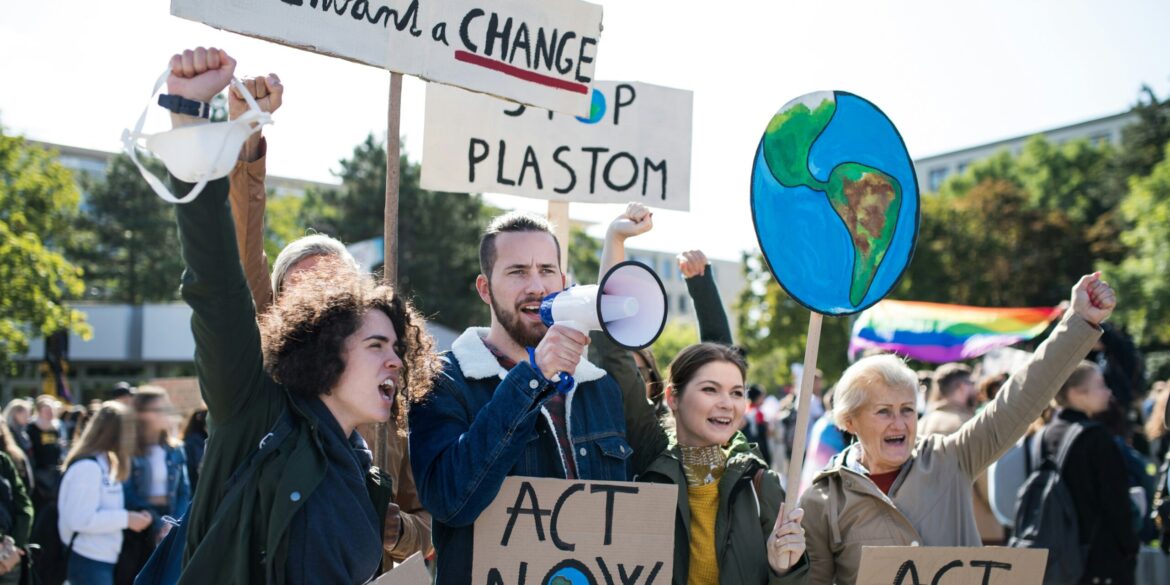The Congressional Progressive Caucus (CPC) has rolled out its policy agenda for 2025, a bold blueprint designed to tackle some of the most pressing issues facing the country today, including economic inequality, healthcare access, and climate change. The release of the agenda signals the group’s commitment to advancing progressive legislation and reshaping the policy landscape, particularly as the nation grapples with challenges such as rising income disparity, an overburdened healthcare system, and the urgent need for environmental reform.
One of the central pillars of the 2025 agenda is the push for universal healthcare. Progressive leaders are continuing to advocate for a system that ensures healthcare is a right, not a privilege. The agenda proposes expanding the Affordable Care Act (ACA) or moving towards a single-payer healthcare system, with the ultimate goal of providing comprehensive healthcare coverage for every American, regardless of their income or employment status. The CPC has consistently argued that a universal healthcare system would not only improve public health outcomes but also reduce overall healthcare costs in the long run by making preventive care more accessible and eliminating inefficiencies in the current system.
Alongside healthcare, the Progressive Caucus is calling for significant increases to the minimum wage. The current federal minimum wage, which has remained stagnant at $7.25 per hour since 2009, has failed to keep pace with inflation and the rising cost of living. The proposed wage hike would lift millions of American workers out of poverty, particularly in industries such as retail, food service, and caregiving, where wages are often low despite the high demand for labor. By advocating for a higher minimum wage, the CPC hopes to reduce income inequality and boost consumer spending, which in turn would benefit the broader economy.
Another major component of the 2025 agenda is an aggressive approach to climate change. In response to the growing threat of global warming and its catastrophic impacts, the CPC is pushing for large-scale investments in green infrastructure and clean energy initiatives. This includes expanding renewable energy sources like solar and wind, modernizing the nation’s energy grid, and making significant strides in energy efficiency across industries. The policy agenda emphasizes the need for comprehensive environmental reform, including the creation of green jobs, which would help transition workers from industries like fossil fuels to more sustainable sectors. These proposals align with the Green New Deal, which advocates for both economic and environmental justice by addressing climate change while creating millions of well-paying jobs.
Progressive leaders have framed their agenda as a necessary counterbalance to what they describe as a conservative agenda that prioritizes the interests of the wealthy and corporations over the needs of working-class Americans. They argue that conservative policies, particularly in the areas of taxation, healthcare, and environmental regulation, have exacerbated inequality and failed to address the challenges facing the country in the 21st century. As a result, the Progressive Caucus is calling for bold legislative action to create a more equitable society—one where wealth and opportunities are distributed more fairly, and the most vulnerable Americans are supported by a robust safety net.
The 2025 agenda is expected to have a profound impact on upcoming legislative sessions, influencing not only the priorities of the Progressive Caucus but also shaping the broader policy debate in Congress. While some of the proposals, such as universal healthcare and the Green New Deal, are expected to face stiff opposition from Republicans and moderate Democrats, the release of this agenda signals that progressives are preparing for a long-term fight to make their vision of a fairer, more just society a reality.
In the wake of the agenda’s release, several progressive leaders have expressed confidence that momentum is building for the kind of sweeping reforms outlined in the plan. They point to the growing public support for policies like Medicare for All, increased minimum wages, and environmental action, as well as the increasing number of younger, more liberal lawmakers entering Congress, who are expected to champion these causes. Despite the challenges of a divided Congress, the Progressive Caucus remains committed to pushing for these measures, aiming to shape the national discourse and hold lawmakers accountable to their constituents.
In the coming months, the Progressive Caucus is likely to continue advocating for these policies through grassroots campaigns, town halls, and partnerships with labor and environmental organizations. The success of these efforts will depend not only on public support but also on the ability of progressive lawmakers to build coalitions within Congress and overcome opposition from conservative factions. However, with the 2025 agenda now officially on the table, the CPC is positioning itself as a key player in the next phase of the nation’s legislative battles.
The release of the 2025 policy agenda also serves as a reminder of the ongoing ideological battle within American politics, where progressives are pushing for systemic changes to address the nation’s most pressing challenges, while conservatives remain focused on issues such as tax cuts and deregulation. As the nation moves closer to the next election cycle, the clash between these competing visions will likely intensify, making it even more crucial for lawmakers and voters alike to consider the long-term implications of these policy debates.
The 2025 Progressive Caucus agenda sets the stage for what promises to be a contentious, yet highly consequential, period in American political history. With its ambitious proposals and bold vision for the future, the agenda challenges both Congress and the American public to think critically about how to address the fundamental inequalities that persist in society today.

